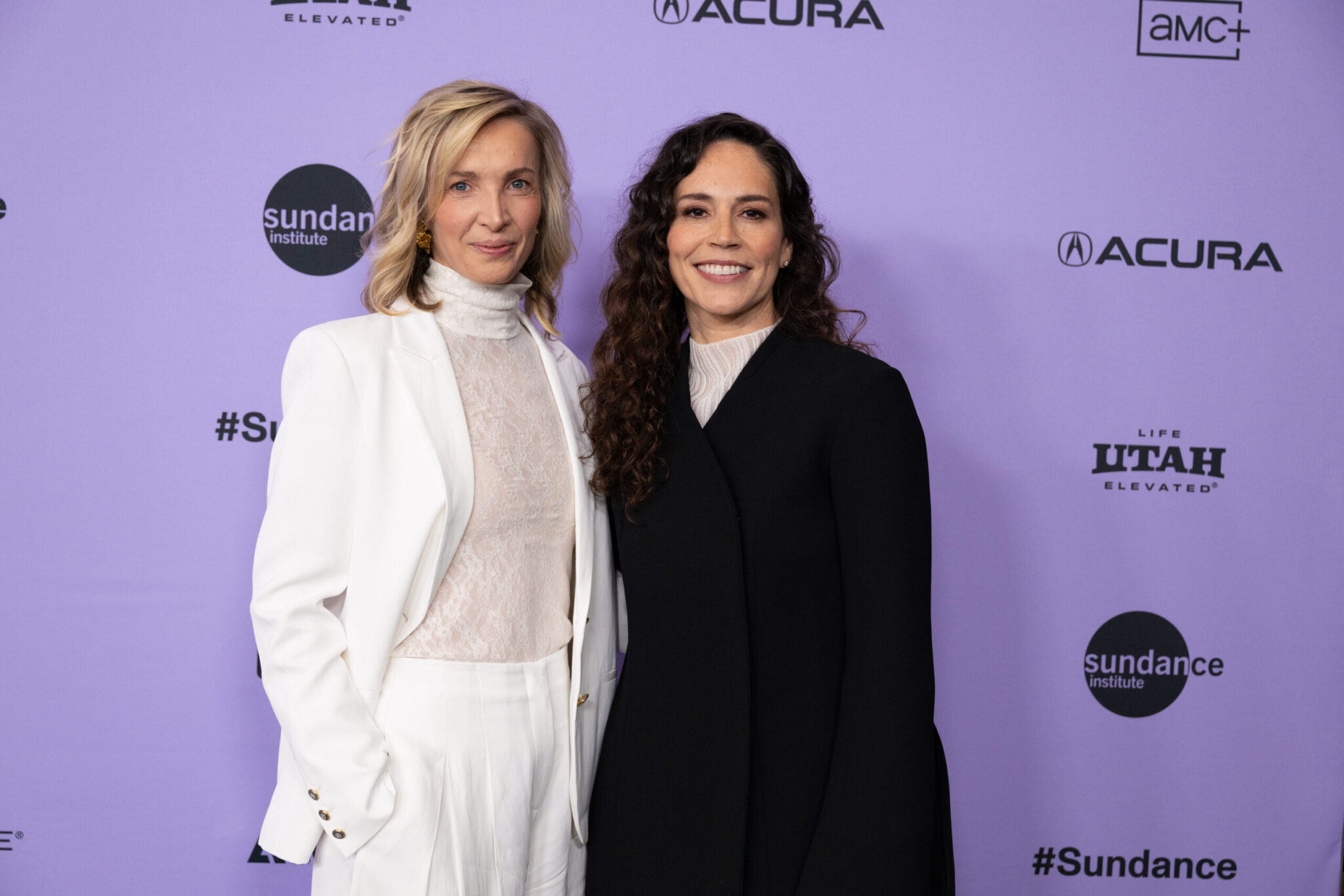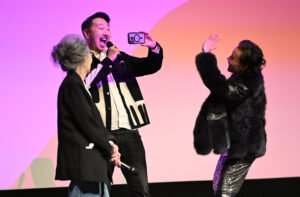PARK CITY, UTAH – JANUARY 21: Director Sarah Dowland and Sue Bird at the 2024 Sundance Film Festival “Sue Bird: In the Clutch” premiere at Eccles Theatre on January 21, 2024, in Park City, Utah. (Photo by George Pimentel/Shutterstock for Sundance Film Festival)
By Stephanie Ornelas
A roaring applause rippled through Eccles Theatre on January 21 at the 2024 Sundance Film Festival when WNBA basketball legend Sue Bird made her way to the stage during the post-premiere Q&A of Sue Bird: In The Clutch.
Bird spent a whopping 21 years as a professional basketball player, and during that time, she won five Olympic gold medals and became the most successful point guard in women’s basketball. Sarah Dowland’s inspiring documentary follows Bird as she confronts her next feat: retiring from the game that’s given her everything.
“For me, the way I get into any film is through character,” explains Dowland. “ So, I need to make that connection first, and Sue’s story just connected out to bigger questions and themes.
“Once I scratched the surface, there was so much more behind her story as an athlete. That, in and of itself, is absolutely legendary as you just saw, but there was also a whole other piece to her story. It really became a coming-of-age story.”
Dowland took the stage with Bird and executive producer Jay Ellis, who explained to audiences why he was so inspired by Bird’s story and what made the project come together.
“My producing partners Aaron Bergman and Ryan Ruocco have been best friends since they were babies, basically. Ryan has been a really good friend of Sue’s for a really long time and introduced us to [her]. Aaron and I were talking, and this idea came up. We love Sue and we both have known of Sue’s career forever.”
So, Ellis called Bergman and explained to him that they wanted to make a documentary about Bird’s life and career as she prepares for retirement.
“Ryan got us on a Zoom with Sue — and I still have a screenshot of the texts between us while we were on that call. Like, ‘Yo, are you going to ask her?’ laughs Ellis with the audience. “It’s very rude to ask an athlete when they’re going to retire.”
On that call, they created a presentation to present to Bird, outlining her career and some things they thought, thematically, that she would want to explore if she does tell this story. “She took a minute to think about it, and she said yes,” adds Ellis.
From there, it would be an uphill battle to get the film funded, but that didn’t stop Ellis and the production team from pursuing this project.
“A lot of people said no. Actually, everybody said no. Everybody shut the doors in our face. They pretty much said that no one cares about women’s sports and no one was interested in telling these stories. And that lit a fire under everyone’s ass. To quote Sue: ‘We took it personal.’”
Ellis and the team started knocking on doors and talking to everyone they could about the project until they found Justin Biskin, head of Waffle Iron Entertainment.
“On that call, Justin said, ‘I don’t even know why we’re on a Zoom. Yeah, we’re doing it.’ From there, we got to make a film.”
And the rest was history. Audiences were delivered a captivating documentary about a trailblazing athlete who made a massive impact on the game of basketball, even as she navigated through adversity in the form of sexism, racism amongst her peers, and anti-LGBTQ+ prejudice.
“When I heard we got a lot of no’s, I said, ‘Yeah, welcome,’ chuckles Bird. “Welcome to the party.”
It’s no secret that there’s a lack of opportunities for women’s sports in the U.S. And because of that, Bird spent many of her offseasons playing in Russia, where she finally received the recognition she deserved from sports fans everywhere, and even her male counterparts back at home.
“I understood this was a story of success, and somebody who was a Robin to many Batmans. I think a lot of people can relate to me finding myself and can relate to retirement and the questions around it,” explains Bird. “I also knew this was going to open a lot of doors to the next women’s doc.”
As the film progresses, audiences see how Bird’s journey forges a path for young women athletes everywhere — one that previously never existed.
“We got so many no’s; something I’m very familiar with. We were told nobody cares, something I’m very familiar with. It’s also that moment where I’ve been told that in my life and I’m like, ‘20,000 people are coming to the games, what do you mean nobody cares?’ It’s a little bit of a gaslight.
“What’s really interesting about me here right now is that we were told, ‘no,’ and then we got into fucking Sundance.”







